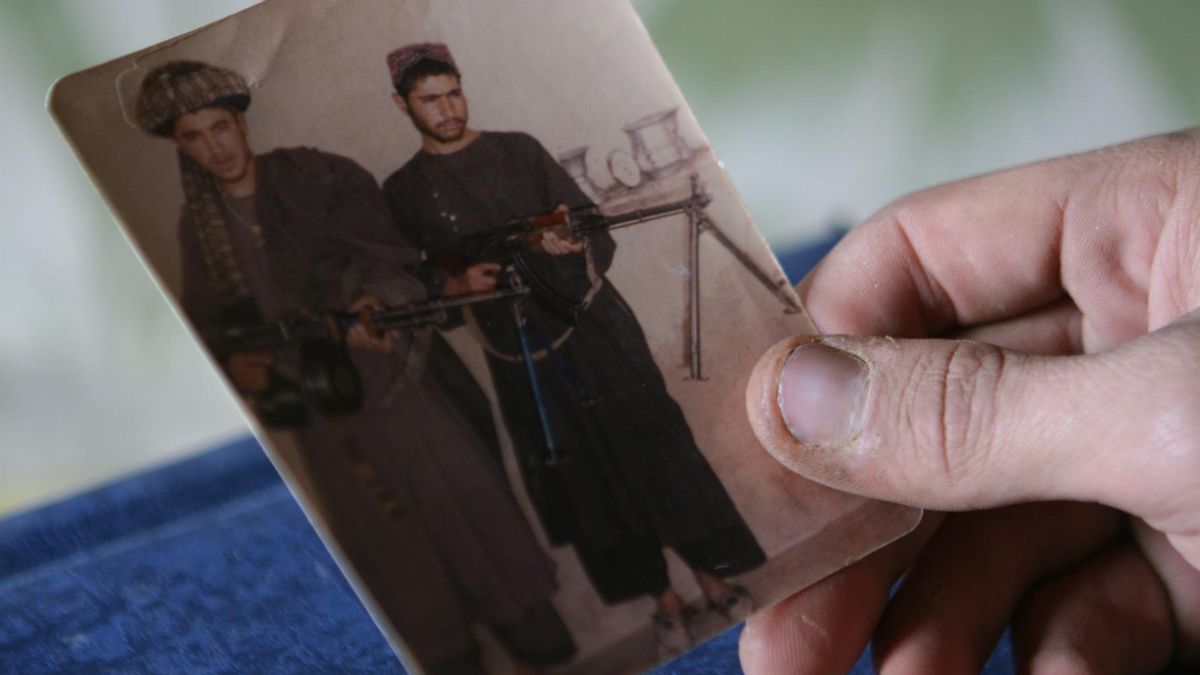JAKARTA - The Taliban are in power again in Afghanistan. The will to rebuild Afghanistan as an Islamic state will be carried out in the future. On the other hand, the Islamic State of Iraq Syria (ISIS) is in the throes of defeat. Both groups have the same vision: to establish an Islamic state. What is an Islamic country? Why do so many want to establish an Islamic state?
Indonesia was once formulated as an Islamic state. Sekarmadji Maridjan Kartosoewirjo was the initiator of the idea. He even proclaimed the Islamic State of Indonesia (NII) in Tasikmalaya Regency, August 7, 1949. According to Kartosoewirjo, the concept of an Islamic state is a state founded by the commandments of Allah alone, including authentic hadiths, laws and state regulations that are decreed. Ulil Amri Islam.
Bahtiar Effendy, in Islam and the State -- Transforming Islamic Political Ideas and Practices in Indonesia (2009) divides the spectrum of Islamic political thought into two major groups. Some Muslim thinkers consider Islam to be the foundation of the state. Shari'a must become a constitution because the true political sovereignty is in the hands of God. They also believe that the idea of a nation-state is contrary to the concept of the ummah or Islamic community that knows no political boundaries.
Another group argues that Islam does not recognize a standard pattern of state form, let alone a political system that must be run by the ummah. "Islam as a religion does not prescribe a particular system of government for Muslims because the logic of the suitability of this religion for all times and places demands that questions which are constantly changing by the forces of evolution must be left to human reason (to think about them)..."
"... was formed according to the public interest and within the framework of the general principles that have been outlined by this religion," Effendy, quoting Muslim thinkers from Egypt. According to Effendy, the first spectrum of thought emphasizes legal and formal aspects. While the second spectrum of thought puts forward the substantive aspect of the idealization of Islam.
Islamic State in the world, what are the characteristics and development?Broadly speaking, there are five concepts adopted by Islamic countries in history. First, the theocratic concept. This concept views the sovereignty of a country in God. The theocratic concept in an Islamic state emerged during the time of the Prophet Muhammad.
Second, the concept of the republic. After the death of the Prophet Muhammad SAW, government affairs were held by Khulafaur Raysidin. There are fundamental changes in the management of Islamic government. The form of the republic in question still refers to the supreme sovereignty in the hands of God.
However, because there is no longer Prophet Muhammad SAW as the recipient of revelation, then the leadership is held by the caliphs. Starting from Abu Bakr, Umar bin Khattam, Uthman bin Affan, to Ali bin Abi Talib. The Islamic State under Khulafaur Rasyidin also adopted democracy.
Many Islamic thinkers argue that this era form of state is the most ideal in Islam. Third, the concept of monarchy. The death of Ali bin Abi Talib marked the end of the caliphate era. The Islamic state changed its form to a monarchy or kingdom system. The head of state is absolute.
Power is hereditary. Deliberation is no longer a way of consensus. This form of monarchy began to develop during Muawiyah's time, before being preserved by the Abbasid dynasty. The peak of all absolutism occurred when the emergence of the power of the Ottoman Turks in Istanbul.

Lastly, constitutional monarchy. This concept emerged in the 19th century and was triggered by the entry of Western influence into Islamic politics. The fifth, the concept of the republic. The abolition of the Ottoman Empire by Mustafa Kemal Attaturk brought major changes.
He formed the Republic of Turkey in 1923. One year later, 1924, Turkey became a fully fledged republic. The change in Turkey provoked a big discussion about the concept of a structured and systematic Islamic state.
Today, several Islamic countries have been established, such as Saudi Arabia, Qatar, Yemen, and Iran. Afghanistan had adopted an Islamic state system when the Taliban came to power from 1996 to 2001. At that time Afghanistan was the only Islamic country that implemented Islamic law.
The Taliban forbids things that are against religion, such as alcohol, cinema, music, internet, television, and photography. Not only that. The Taliban also restrained women. They are prohibited from attending school until their employment is limited.
“The provisions that demean and restrict women are seen as important by the Taliban to prevent their country from falling into the abyss of crime and abuse, as has happened in Western countries with the emancipation of women. However, these provisions have in fact made women miserable,” concluded Taufik Adnan Amal in the book Politics of Islamic Sharia: From Indonesia to Nigeria (2004).
Why do ISIS and the Taliban want an Islamic state?
Basically ISIS and the Taliban have the same goal, namely establishing an Islamic government. The difference is, ISIS wants an Islamic government that includes multinationals. Meanwhile the Taliban are focused on taking control of Afghanistan and establishing an Islamic government there.
"Their main concept is to believe that the highest law on Earth is the law of Allah. Its manifestation is a strict Shari'a law. The difference is that for ISIS there can only be one authority to determine the Shari'a judgment for all Muslims in the world."
"And they claim that authority. As for the Taliban, it depends on each country. In Saudi Arabia, it means Saudi. In Qatar, it is Qatar. In Afghanistan, they want to be the Islamic Emirate of Afghanistan, which is led by the Taliban," said the University of Indonesia terrorism observer Ridwan Habib to VOI, Friday, August 27.
That difference puts ISIS and the Taliban at odds. And the Taliban victory, according to Ridwan Habib, will provoke a reaction from ISIS. This was proven by the two suicide bombings that killed hundreds of people outside Kabul airport, Afghanistan yesterday.
"Of course ISIS doesn't like the Taliban's victory. After all, ISIS has its own ideals about an Islamic government. According to ISIS there can only be one Amirul Mukminin, namely Abu Ibrahim Al Hashimi, whom Muslims around the world must obey."
Another terrorism observer, Al Chaidar agreed that the Taliban's victory was a blow to ISIS. Unlike the Taliban, ISIS suffered defeat. Even their previous caliph, Abu Bakr Al Baghdadi was killed. ISIS to this day continues to be cornered in various parts of the world.
According to Al Chaidar, ideological differences are also what led to the failure of ISIS. "ISIS people don't have a strategy. Because their ideology is infidel. They like to belittle other people. Meanwhile, the Taliban are provoking the participation of others. They also respect other people," Al Chaidar told VOI.
*Read other information about AFGHANISTAN or read other interesting articles from Detha Arya Tifada, Fauzi Iyabu and Yudhistira Mahabharata.
Other BERNASThe English, Chinese, Japanese, Arabic, and French versions are automatically generated by the AI. So there may still be inaccuracies in translating, please always see Indonesian as our main language. (system supported by DigitalSiber.id)









